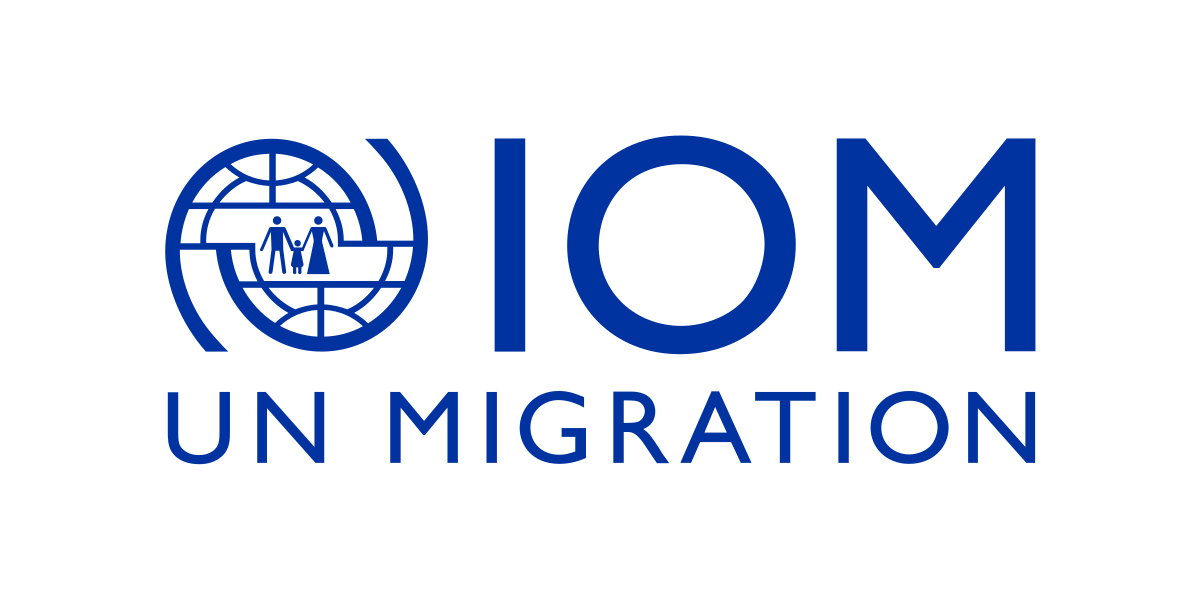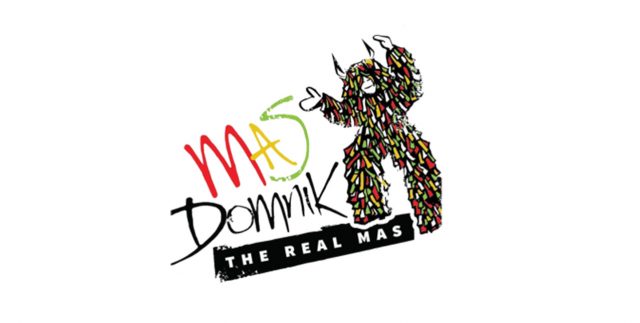
Much has been said about electoral reform and the current state of affairs following the report of the Observer Mission to Dominica. However, some of the important background facts must be considered before the Mission’s Report and recommendation for a house to house reverification are discussed.
Chronology of facts and events towards reform
- February 21, 2011. The Cabinet formally informs His Excellency the President, with a request for the onward notice to the Electoral Commission, of its Decision to introduce a National ID Card that will include all the features requisite in a voter’s identification card
- June 15, 2011. The Commission informs the Executive that it is “not averse” to a National ID card that can be used for voting and, further, proposes the St. Lucian model.
- July 16, 2013. His Excellency the President requests financing for the issuance and administration of the National ID Card.
- August 20, 2013. The Executive commits to providing finances for the ID Cards and encourages the search for a draughtsman for the legal amendments.
- December 9, 2013. The Honourable Prime Minister, His Excellency, and the Electoral Commission Chair meet to discuss and advance discussions pertaining to the implementation of the National I.D Card and the engagement of a legal consultant to facilitate revisions and subsequent amendments to the relevant laws.
- December 1, 2015. Cabinet directs that copies of the Bill for an Act to amend the Registration of Electors Act Chap. 2:03 and the House of Assembly (Elections) Act Chap. 2:01 and the related S.R.Os be sent to His Excellency for his information and requesting that he forward copies to the Electoral Commission for its consideration, advice, and/or approval.
- December 4, 2015. The Executive submits draft copies of Bills to Electoral Commission for scrutiny and comments: namely the House of Assembly (Elections) (Amendment) Act, Chap 2:01 and the Registration of Electors (Amendment) Act, Chap 2:03.
- September 7, 2016. His Excellency submits to the Honourable Prime Minister, the Commission’s reactions to and recommendations on the draft amendments to the electoral laws and further, advises of the Commission’s availability to discuss the same.
- February 21, 2017. The Executive approves $2,043,108.80 for the procurement of the ID Card management system and a maintenance contract for the same.
- May 2 and 3, 2017. The Executive authorized for expenditure by the Electoral Office:
- The sum of $91,402.08 for general staff adjustments [at the Electoral Office;
- The sum of $3,995,789.49, that is:
- $319,961.45 to employ additional staff required for the confirmation exercise and issuing of ID Cards;
- $274,618.05 to meet the costs associated with clearing the equipment at the port and the installation of the system network;
- $162,408.00 to purchase a passenger bus, pay the cost of premium insurance for the bus, and the maintenance of the same;
- $341,011.58 for the costs of the confirmation exercise to include public relations, subsistence, and rental of property;
- $1,136,546.40 for meeting the costs of travelling to confirmation Centres for confirming overseas-based nationals; and
- $1,761,244.01 to meet the cost of 300 mobile checkpoint units.
- The allocation and expenditures referred to in paragraphs 10 and 11 were all premised on the process of confirmation and ID cards being submitted to and approved by the Parliament.
- May 9, 2017. Cabinet authorizes and instructs the creation of legal instruments on electoral reform.
- May 23, 2017. The Executive tables the Bills entitled Registration of Electors (Amendment) Act 2017, and House of Assembly (Elections) (Amendment) Act 2017. These bills provided for among other things
- Codification of the law on bribery and treating;
- The “sanitization” of the Register by way of a confirmation process which would require persons registered to apply to be confirmed, and show or establish that they in fact visited Dominica at least once in the immediately preceding five (5) years; and
- ID Cards with photographs, biometrics etc.
- Prior to the submission of the bills to the Parliament in 2017 they were reviewed and approved by Miss Pauline Welsh, an expert on election law from Jamaica, was sent to the Commission by the Commonwealth to assist in reviewing and advising on the bills. More will be said on this later.
- May 23, 2017. Gunshots were fired outside Parliament when persons protesting the scheduled debate of the Registration of Electors (Amendment) Act 2017, and House of Assembly (Elections) (Amendment) Act 2017 breached Police barriers and attempted to march on the Parliament.
- May 25, 2017. The Honourable Prime Minister advises the Honourable Speaker of the House that the Government will no longer pursue the debate of the Registration of Electors (Amendment) Act 2017, and House of Assembly (Elections) (Amendment) Act 2017 as detailed in the Order Paper in order “to avoid obvious confrontation that others are seeking.”
- August 8, 2018. The Executive informs His Excellency of Government’s intention to table on September 17, 2018, two Bills: The Registration of Electors (Amendment) Act 2018 and a revised House of Assembly (Elections) (Amendment) Act 2018.
- These revised bills removed all references to the law on bribery and treating. Then earlier references to bribery and treating sought to do no more than clarify the law of bribery and treating consistently with the 2010 judgment of Justice Errol Thomas, which followed the 2009 election.
- August 31, 2018. On the 29th August 2018 the Leader of the Opposition publicly indicated that with the removal of the references to bribery and treating the bills were in order and that the process can proceed to the implementation of ID cards.
- September 7, 2018. An application is filed for an injunction preventing the Government from seeking Parliament’s approval to nine (9) clauses in the Bill that proposes amendments to the Registration of Electors Act 2018, and declarations that those 9 and other clauses of the Bill are unlawful and/or in breach of the Constitution.
Some other indisputable facts
No fraud or fraudulent voting
- This country has never had any fraudulent voting of any kind.
- There is no report from any Chief Election’s Officer, and the Commonwealth Observers made it clear in their report after the 2014 that there is no record of fraud, personation or fraudulent voting in Dominica.
- Elections petitions were filed after the 2005 and 2009 elections. These petitions were dismissed. The main if not sole allegation, other than the issue of allegiance, concerned the alleged provision of transportation by the DLP to duly registered electors in the Diaspora;
- There was no election petition after the 2014 election;
- The sole “complaint” made over 5 months after the 2014 election in the Magistrate’s Court concerned the alleged offence of treating and two public and open concerts in Roseau prior to election day;
- There was therefore no allegation or “complaint” of fraud, dead people voting or personation after the 2000, 2005, 2005 and 2014 elections. Therefore, the current allegations made by the Leader of the Opposition allegations of fraud or fraudulent voting dead people voting or personation are wholly unfounded and false;
- The fact that the Leader of the Opposition’s current allegations are false come as no surprise. His allegations have moved through multiple mutations. For example
- Dominican citizens who are duly registered and reside in the Diaspora have no right to vote. The mantra was “ vote where you live” and if you do not live in Dom9inica you have no right to vote: then it was
- Dominican citizens who are duly registered and reside in the Diaspora can vote but they must find their own way home; then
- Roosevelt Skerrit stole 1.2 billion dollars to buy tickets for you to vote. Take the tickets, but if you vote for them that is bribery. But if you vote for the UWP, in good conscience, that is not bribery.
- These are not the only series of mutated allegations by the leader of the Opposition.
- As indicated above, the revised bills provided for a confirmation process, and system for ID cards which the Government and Commission believed would provide for a more up to date and “clean” list and ID cards as recommended previously by Observers.
- The revised bills were submitted to the Members of Parliament in 2018.
- On the 29st August 2018 the Leader of the Opposition publicly declared that with the removal of the references to bribery and treating the bills were in his opinion in order and that the process to ID cards should proceed. There is no other rational interpretation of his admission having regard to the clear and unambiguous language used by him.
- This unequivocal public admission notwithstanding, the Leader of the Opposition subsequently mutated his position once again to chant no reform no election without rhyme or reason.
The right to vote
- In Parry v Mark Brantley HCVAP 2012/00 the Court of Appeal at paragraphs 49 and 50 said
“The right of enfranchisement
[49] The constitutional right of enfranchisement is not in doubt. In Russell v Attorney-General of Saint Vincent and the Grenadines, this Court underscored and explained the nature of the rights guaranteed by an almost identical provision in the St. Vincent and the Grenadines Constitution:
“The constitutional right conferred by section 27 is two-fold. The first is the basic right to be registered as a voter in the appropriate constituency. That basic right is granted to every Commonwealth citizen of the age of 18 years or upwards, if he possesses the prescribed qualifications relating to residence or domicile in St Vincent and is not disqualified by Parliament from registration as a voter. The second is the concomitant right to vote in the appropriate constituency. That concomitant right is granted to every citizen who is entitled to the basic right. That concomitant right is a right to vote ‘in accordance with the provisions of any law in that behalf’. This means that although the manner of voting is statutory or customary, the right to vote is inherently constitutional.”
[50] The Canadian Supreme Court has emphasized the importance of the right to vote, not only as it relates to the system of democracy which it underpins, but also as an expression of the dignity of the individual. The South African Constitutional Court has made the point that the vote of each and every citizen is a badge of dignity and of personhood. Quite literally, it says that everybody counts. The provisions of the Act governing the exercise of the right to vote may be said to have a constitutional pedigree. In applying the law and the regulations, preference must be given to recognition of the right to vote, and the legislation must be construed in a manner which promotes enfranchisement and guards against disenfranchisement. These concepts and principles apply to the states and territories of the Eastern Caribbean no less than they do in Canada and South Africa.”
- This Government has been, and is guided, by the paramount constitutional principle that in making or applying the law and the regulations, preference must be given to recognition of the right to vote, and the legislation must be construed in a manner which promotes enfranchisement and guards against disenfranchisement.
The Commonwealth Observers and allegations of voter fraud
- There has been much noise on allegations of fraud. This myth, this unfounded allegation, dealt with by the Commonwealth Observers were in Dominica following the 2014 election. At page 12 to 13 of their report the Observers said
“The Mission notes that within the confines of a small close-knit society as Dominica, verifying the identity of a voter is not a major issue, a view supported by the fact that historically cases of voter fraud have not been recorded in the country.”
The Commonwealth Observers and state of the current Register
- The Commonwealth Observers also addressed the state of the Register at page 20 of their report where they said
“The Mission concludes that, despite its aforementioned shortcomings, the voters’ list did not materially affect the credibility and transparency of the election process and of the results. The list is however widely and publicly discredited and despite, in the Mission’s view, being accurate and appropriate in the eyes of existing legislation, the Mission does not believe it necessarily reflects the reality or the wishes of Dominican society.”
- Despite their finding that the Register was accurate and appropriate under the law and did not affect the election, the Observers repeated, surprisingly, allegations of opinions or wishes of those who met with them, notwithstanding they were not supported by evidence, and contradicted the Observers own findings. Nevertheless, the Observers findings on the integrity and accuracy of the Register are indisputable
The confirmation process under the revisited bills
- As indicated earlier, Miss Pauline Welsh, a consultant from the Commonwealth, reviewed the respective bills and commended the provisions concerning the confirmation of electors both domestically and in the Diaspora, and the process for ID cards in her Addendum to her Report. Miss Welsh highlighted the fact that the confirmation of electors and process for ID cards as set out in the bills provides for a full reverification/confirmation process which gave effect to recommendations of Observers, and reflected international best practices.
- So what do the provisions for confirmation actually say?
The confirmation process
- The Parliament seeks to introduce the confirmation of an elector’s registration by PART III and sections 30 and 31 of Registration of Electors (Amendment) Bill ;
- The full confirmation process is dealt with in the draft Registration of Electors (Amendment) Regulations;
- This process requires a person to confirm his registration. [Section 5 of the draft Registration of Electors (Amendment) Regulations];
- If a person fails to apply to be confirmed, he will not be confirmed because section 7 of the Registration of Electors Act will be amended to remove all persons from the Register who fail to apply to confirm during the confirmation period ;
- The proposed Regulation 10 A (6) of the draft Registration of Electors (Amendment) Regulations requires an enrolment officer to refuse to grant an application to confirm once the proposed grounds under Regulation 10 (a) to (c) are triggered;
- One of the specific grounds on which an enrolment officer is required to refuse to confirm an elector is if the elector fails to show he or she has visited Dominica at least once in the immediately preceding five years.;
- Section 30 and 31 sets out the process;
- There ought to be no doubt therefore that under the existing bills if a person fails to apply to be confirmed, or is not able to satisfy the enrolment officer that he or she in fact returned at least once in the preceding five years, that person will not be confirmed. Consequently, that person’s name as well as everyone who fails to apply to be confirmed will not appear in the new Register following the confirmation process.
- The Commonwealth consultant Miss Pauline Welsh reviewed sections 30 and 31 of Registration of Electors (Amendment) Act. At pages 22 and 23 of her Addendum she wrote
“Comments and Observations
The insertion of this new section 30 is critical to the achievement of a voter’s register which reflects the voting population with some degree of accuracy and correctness. Coupled with proper administrative and other guidelines from the Commission, the achievement of the creation of an acceptable voter’s register can become a short to medium term objective of the Commission. This amendment fulfils one of the important recommendations made in the earlier report for a full reverification/reconfirmation exercise. The amendment requires verification of the electors living overseas at embassies, missions and at other places as designated by the Commission. In order to achieve this overseas verification, wide scale logistic planning will be required. There are several countries that have successfully implemented similar programmes from which the Commission may seek to adopt best practices and lessons learned. Case in point the Dominican Republic employed Voting Coordinators to operate overseas to effect registration. Mexico adopted a similar approach as is being suggested. It means therefore that there are several international cases best practices that the Commission may rely on in order to inform itself how best to give effect to section… Such an exercise if not managed and administered properly can become a logistic nightmare. There are examples of jurisdiction where overseas registration was poorly managed and the exercise had to be eventually abandoned.
The Electoral Commission may wish to seek further assistance in this regard from the breadth of existing Commonwealth expertise.’
- Significantly, and it’s worth repeating, Miss Welsh said in her Addendum
“This amendment (for the confirmation process) fulfils one of the important recommendations made in the earlier report for a full reverification/reconfirmation exercise.”
- The words “full reverification/reconfirmation exercise” cannot be ignored.
The Observer Mission
- The Government of the Commonwealth of Dominica invited an Observer Mission to Dominica. Following discussions with stakeholders, the Mission recommended what is no more than a conditional house to house reverification process because the Mission made is clear that certain persons will not be removed from the Register during this process. In other words, not a “full reverification/reconfirmation exercise.” For example
- This recommendation places the burden on the Commission, Chief Elections Officer and enrolment or registration officer to go and seek out electors through every village hamlet, town, and constituency who may or may not reside in their place of registration or Dominica. Persons not found, who are disputed or who do not co-operate, cannot be removed from the Register during this reverification process;
- The recommendation requires the publication of a list of those not verified inviting them to apply or attend for reverification. However, if no one turns up, they cannot be removed during this process, This means that at the end of the process, we will not have full reverification or a clean list;
- In stark contrast to the Mission’s recommendation, the confirmation process provided for under the existing bills places the burden on the elector, and at the end of this process, the Register will be fully updated and “clean.” There is no need under this process to seek anyone out. They must apply to be confirmed, and meet the qualifications for confirmation;
- Further, the Mission’s recommendation will require far greater resources, personnel, and time, than required under the confirmation process. As shown above, significant allotment and expenditure of funds for the confirmation and ID card process have already been expended. In any event, no justification was given by the Mission for this additional expenditure;
- Finally, there was no discussion of the contemplated bills or the detailed and critical analysis and recommendations from by Miss Pauline Welsh. Absolutely no good or valid reason was advanced for not considering the bills and Miss Welsh’s recommendations.
SECRETARY TO THE CABINET




